M.Tech Mechanical Engineering (Design Engineering)
Programme Overview
The M.Tech in Mechanical Engineering (Design Engineering) programme at MIT-WPU focuses on the design and modeling of industrial tools and software. By integrating mechanical, electrical, and electronic systems, this curriculum emphasises on material selection for optimal performance, complemented by hands-on experiences in both core and elective courses.
Through this programme, students can hone the skills necessary to design cutting-edge, industry-ready products. With a blend of theoretical knowledge and practical application, graduates can excel in fields such as mechanical engineering, CAD/CAM software development, and structural design, and by being at the forefront of engineering innovation.
Major Tracks
- Advanced Computer-Aided Design (CAD) and Simulation
- Material Selection and Smart Materials
- Mechanical System and Product Design
- Process Equipment and Instrumentation Design
Duration & Fees
Duration
2 Years
Applications Open for 2026
Fee Per Year
₹ ₹ 2,25,000
Scholarship
| GATE Score | MIT-WPU Stipend per month | Workload / Teaching Assistantship in MIT-WPU |
|---|---|---|
| Eligible General Category GATE Score for stipend as per AICTE norms | ₹ 12,500/- (For the entire duration of the programme) | 8 hours workload per week |
| GATE Score 15 and up-to Eligible General Category cut-off | ₹ 8,000/- (For first year only) | 6 hours workload per week |
| GATE Score 10 to 14.99 | ₹ 6,000/- (For first year only) | 4 hours workload per week |
Terms & Conditions Apply:
- During Working Hours, M.Tech Students will be considered for 'on campus job' as per Policy.
- To continue the scholarship for the entire duration of the programme, a minimum level of the academic score has to be maintained at an 8 CGPA across all semesters, attendance is to be maintained at a minimum of 80 percent, with no live backlogs in any subject/programme and no semester break, and there should be no disciplinary action against the student.
For more detailed information visit our website: https://mitwpu.edu.in/scholarships
Eligibility
Minimum 50% aggregate marks in a 4- year graduation degree in the relevant Engineering branch* from a UGCapproved institution/ university or its equivalent (Minimum 45% aggregate marks for candidates belonging to the Reserved Category from Maharashtra State).
Selection Process
Admission will be based on the merit of the MIT-WPU CET 2026 Entrance Examination, along with a Personal Interaction (PI) score conducted by MIT-WPU as per the prescribed schedule.
A valid score in GATE score (2026/ 2025/ 2024), PERA-CET 2026 will also be considered for the selection process; in such cases, the candidate must additionally appear for the Personal Interaction (PI) Score conducted by MIT-WPU as per the prescribed schedule.
For admission under sponsored category, candidate must have a minimum of two years of full-time work experience in a registered firm, company, industry, educational/ research institute, Government Department, or Government Autonomous Organization in the relevant field in which admission is sought. A Sponsorship Certificate (in the prescribed format) is mandatory for admission under this category.
* For more information regarding programme-wise branch eligibility, please refer to the M.Tech. rules published on the official website.
Programme Highlights
- Case-based learning approach and state-of-the-art lab facilities for practical learning.
- Hands-on training in cutting-edge technologies with industry-standard software like SolidWorks, AutoCAD, CATIA, and ANSYS for 2D and 3D modeling, simulation, and analysis.
- Industry exposure through visits, lectures, seminars, and workshops by experts from TATA, Thyssen Krupp India Ltd., Thermax Ltd, ARAI, KPCL, Siemens, General Electric (GE), Bosch, DRDO,, Ford Motors, and other prominent players in the mechanical design engineering domain.
- Minor in Computer Engineering available for non-computer branches, enhancing competitiveness.
- Skill enhancement courses in business communication, presentation skills, and more. Six-month industry internships and opportunities for national and international immersion programmes.
- MIT-WPU Technology Business Incubator (TBI) encourages entrepreneurship through funding, mentoring, and networking. Collaborations with over 231 corporate entities foster training, research, and development.
- MIT-WPU Dedicated Centre for Industry-Academia Partnerships (CIAP) supports getting internships and job placements.
- Students through advanced mathematical papers, finite element analysis and real-world case studies, can learn to optimise designs effectively.
Career Prospects
Mechanical Design Engineers
HVAC Design Engineers
LED Lighting Engineers
Design Quality Assurance Managers
Programme Outcomes
- Adeptly apply research and sustainability principles, utilising modern computing tools to design products, processes, and systems for solving complex problems.
- Demonstrate competence in managerial roles, adhering to professional ethics, team dynamics, and cultural diversity, striving for professional and organisational goals.
- Proficiently practice engineering in corporate and governmental settings, meeting stakeholder needs to contribute to societal development.
- Skilfully utilise modern computational tools for modelling, simulation, and analysis, with a keen understanding of their limitations, emphasising sustainable designs for long-term consumer satisfaction and environmental conservation.
- Continuously upgrade skills, engaging in lifelong learning and adapting new knowledge and technology.
Placements & Recruiters
100% Placement Assistance
Top Recruiters
FAQs
The programme focuses on advanced product design, mechanics, and system optimisation using modern computational tools. Graduates develop expertise in innovative design methodologies, analysis techniques, and product development lifecycle management.
Graduates can work as Product Design Engineers, R&D Specialists, or Senior Design Consultants in various industries. They can also pursue roles in innovation centres and design firms focusing on new product development.
Students learn advanced design software like SolidWorks, CATIA, Creo, and simulation tools for product analysis. The programme also covers modern design methodologies like DFM (Design for Manufacturing) and DFA (Design for Assembly).
Students work on live industry projects and undergo mandatory internships with leading design and manufacturing companies. The curriculum includes case studies and workshops conducted by industry experts.
Students can pursue research in areas like sustainable design, bio-inspired engineering, and advanced materials design. The programme encourages the publication of research papers and participation in design competitions.




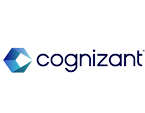


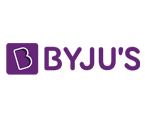



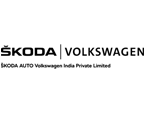
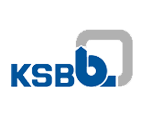
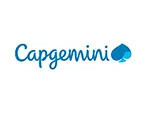
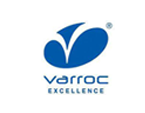





 admissions@mitwpu.edu.in
admissions@mitwpu.edu.in
